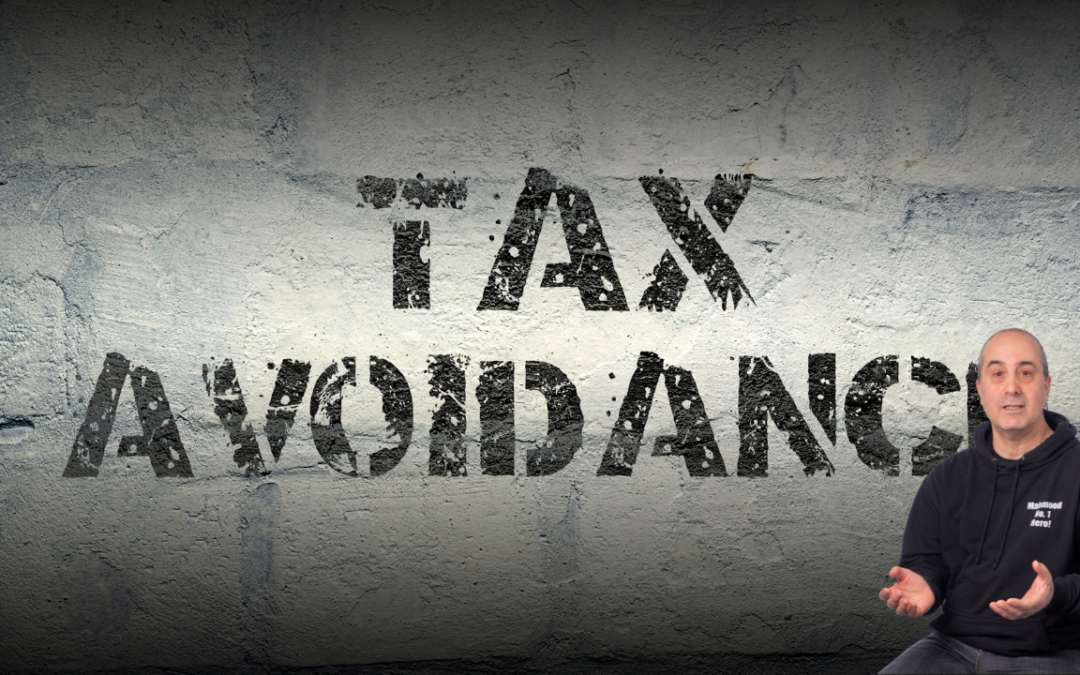Tax avoidance versus tax evasion, they seem similar but they are different. While tax avoidance is legal, tax evasion is not. In this weeks vlog I compare and contrast Tax avoidance tax evasion. Furthermore i will share examples, who doesn’t love examples.
Tax Avoidance
This involves arranging your financial affairs to reduce your tax liability. But, and this is an important but , while staying within the limits of the law. For example
- using tax reliefs and allowances
- tax planning opportunities, such as investing in tax-efficient products like ISAs or pensions
Moreover, while tax avoidance is legal, morality and ethics raise their heads. There is often a moral and ethical debate since it is seen as exploiting system loopholes.
For example, a UK company may use a tax-efficient structure like a holding company based in a low-tax jurisdiction to reduce their tax bill. While this is legal, it has been a controversial practice in recent years, with many people arguing that it allows large corporations to avoid paying their fair share of tax.
Tax Evasion
This is illegal. This includes deliberately failing to declare income or profits; under-reporting income or profits, or claiming false expenses to reduce your tax liability. Tax evasion is a criminal offence in the UK and can result in severe penalties, including fines, imprisonment, and a criminal record.
For example, an individual may fail to declare income from a rental property or cash-in-hand work. This is tax evasion, as they are deliberately failing to report their income to HM Revenue and Customs (HMRC) in order to reduce their tax liability.
Conclusion
In summary, tax avoidance is legal, while tax evasion is not. While tax avoidance is often seen as morally questionable, it is a common practice and can be a legitimate way of managing your tax affairs. However, it’s important to be aware of the risks and potential consequences of engaging in aggressive tax planning. Tax evasion, on the other hand, is a serious criminal offence that can result in severe penalties. It’s important to comply with the law and declare all your income and profits to HMRC to avoid the risk of prosecution.
At “I Hate Numbers,” we understand that difference. That’s why we offer professional tax and accounting services to individuals and businesses. Furthermore. contact us today for help and support on tax, accounts, and managing business finances.
Now, let’s talk about the fabulous resources we’ve cooked up for you. Log in to your client portal (think of it as your secret recipe book) and find the Tax Return Checklist, or select this link . It’s a complete list of ingredients we need to whip up your perfect tax return. Fancy tapping into some extra FREE I Hate Numbers resources about UK tax and business, you have blogs , videos and podcasts to browse through
